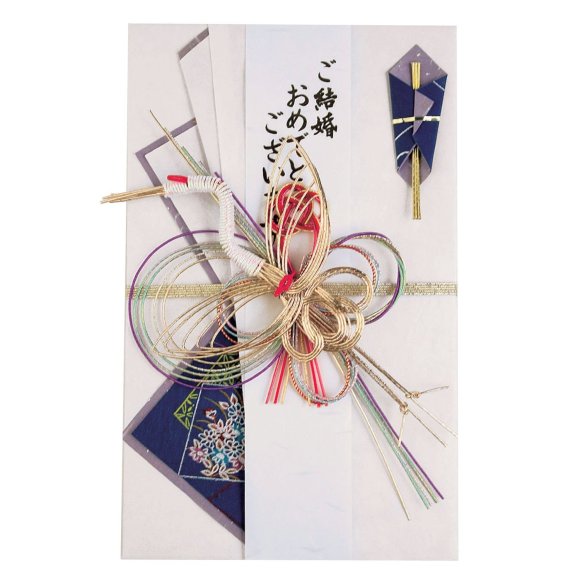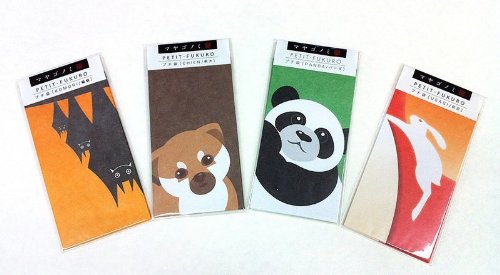
Flipping through any travel guide about Japan you will learn that Japan is a country where tipping is non-existent. Leaving your change on the table at a restaurant may result in the waiter chasing you down to give it back.
But in Japan there actually is a system of tipping that exists but is tangled in a mysterious system of formality that no one really seems sure of. In an interview with Yahoo! Japan, Nobuko Akashi of the Japan Manners & Protocol Association attempts to unravel this system so we can all know when and where it’s appropriate to tip in Japan.
The custom of giving tips in Japan is known as kokorodzuke. It’s rather well known that giving this to the nakai-san (staff) of a traditional Japanese ryokan (inn) can get you extra good service. However, you have to be careful how to give it, as Ms. Akashi explains.
“A tip is money that is given as consideration for receiving a service, so it’s given after the service is done. On the other hand, a kokorodzuke is given as a kind of greeting. It’s as if to say ‘thank you in advance for today.’ As such it’s given before the service.”
In addition to at the ryokan, wedding ceremonies and receptions are common times to give gifts of money to staff as well as the newlyweds. But how you do it is important too. Gifts of money to a couple on their wedding day are traditionally “wrapped” in a special envelope called a shugibukuro.
They can be rather ornate as seen above, so are they really needed for giving kokorodzuke to staff as well?
“Putting the money in a shugibukuro is a little much. Instead use a pochibukuro like used at New Year’s.”
So, while thanking someone in advance can sometimes come across as presumptuous in other countries it’s generally expected in Japan. Also, although tipping beforehand can come across a little arrogant and “greasing the wheels” in other countries, it’s the best way to go in Japan.
Or is it? Ms. Akashi continues:
“Also, giving a kokorodzuke to a hired emcee, friend who makes a speech, or boss can be seen as belittling them. In this case it’s best to give a monetary present as an orei (thanks) after the ceremony has finished.”
The tipping system is full of more special cases as well. For example, some people might give an orei to the doctor treating a relative who is seriously ill. However, this could be taken the wrong way and is not advised.
Also, tipping the staff of an unfortunate event such as a funeral is best done afterward as an orei.
Confused yet? Well, Ms. Akashi has a few more scenarios to throw on the seemingly random pile.
“Giving a kokorodzuke is governed by convention and unwritten rules, so it’s really difficult to know when and when not to do it. For example, I think tipping the movers is no problem.
Also, when having an event like a class reunion where you rent out an entire restaurant would warrant a kokorodzuke as a way of saying, “Sorry, we’re a huge inconvenience, but thank you.” It should be given to the place’s manager before the event. Giving a kokorodzuke to the party organizer is a good idea too.”
The good news for those of you visiting Japan is that you probably won’t get embroiled in weddings, funerals, and/or class reunions, so you won’t have think about this. For those living here, welcome to a confusing etiquette system than even Japanese people aren’t 100% sure about but have to deal with.
At least they don’t have salad and dessert chopsticks here.
Source: Yahoo! R25 (Japanese)
Japan Manners & Protocol Association: website (Japanese)
Top Image: RocketNews24
Shugibukuro Image: Amazon
Pochibukuro Image: Amazon



 Five reasons there’s no tipping at restaurants in Japan
Five reasons there’s no tipping at restaurants in Japan More tip jars appear at Japanese restaurants, but there are important reasons why you shouldn’t tip
More tip jars appear at Japanese restaurants, but there are important reasons why you shouldn’t tip Restaurant payment app starts its second attempt to make tipping a thing in Japan
Restaurant payment app starts its second attempt to make tipping a thing in Japan Japanese restaurant chain installs tip boxes in response to foreign tourists leaving tips, sparks debate
Japanese restaurant chain installs tip boxes in response to foreign tourists leaving tips, sparks debate Time for Japan to start tipping taxi drivers? Cab company now gives passengers option in Tokyo
Time for Japan to start tipping taxi drivers? Cab company now gives passengers option in Tokyo Highest Starbucks in Japan set to open this spring in the Tokyo sky
Highest Starbucks in Japan set to open this spring in the Tokyo sky One-handed pizza from Domino’s Japan is the ultimate convenience
One-handed pizza from Domino’s Japan is the ultimate convenience Ghibli’s Kiki’s Delivery Service returns to theaters with first-ever IMAX screenings and remaster
Ghibli’s Kiki’s Delivery Service returns to theaters with first-ever IMAX screenings and remaster Development of Puyo Puyo puzzle game for use in nursing homes underway
Development of Puyo Puyo puzzle game for use in nursing homes underway Studio Ghibli releases giant Totoro plushies in Japan
Studio Ghibli releases giant Totoro plushies in Japan Boro the Caterpillar anime now showing at the Ghibli Museum in Tokyo 【SoraReview】
Boro the Caterpillar anime now showing at the Ghibli Museum in Tokyo 【SoraReview】 Japanese convenience store chain’s new matcha sweets are heaven for green tea lovers
Japanese convenience store chain’s new matcha sweets are heaven for green tea lovers We take on Thailand’s five-and-a-half-pound hamburger, and live to tell the tale
We take on Thailand’s five-and-a-half-pound hamburger, and live to tell the tale New Yukimi Daifuku mochi ice cream flavour is inspired by…Ogura Toast?
New Yukimi Daifuku mochi ice cream flavour is inspired by…Ogura Toast? Japan’s Twitterers ponder this “don’t feed the pigeons” sign found at train station
Japan’s Twitterers ponder this “don’t feed the pigeons” sign found at train station The 10 most annoying things foreign tourists do on Japanese trains, according to locals
The 10 most annoying things foreign tourists do on Japanese trains, according to locals Starbucks Japan releases new sakura goods and drinkware for cherry blossom season 2026
Starbucks Japan releases new sakura goods and drinkware for cherry blossom season 2026 Naruto and Converse team up for new line of shinobi sneakers[Photos]
Naruto and Converse team up for new line of shinobi sneakers[Photos] Is Sapporio’s Snow Festival awesome enough to be worth visiting even if you hate the snow? [Pics]
Is Sapporio’s Snow Festival awesome enough to be worth visiting even if you hate the snow? [Pics] Japan has trams that say “sorry” while they ride around town…but why?
Japan has trams that say “sorry” while they ride around town…but why? Tokyo Skytree turns pink for the cherry blossom season
Tokyo Skytree turns pink for the cherry blossom season Sakura Totoro is here to get spring started early with adorable pouches and plushies
Sakura Totoro is here to get spring started early with adorable pouches and plushies Poop is in full bloom at the Unko Museums for cherry blossom season
Poop is in full bloom at the Unko Museums for cherry blossom season Shibuya Station’s Hachiko Gate and Yamanote Line stairway locations change next month
Shibuya Station’s Hachiko Gate and Yamanote Line stairway locations change next month Japan’s new “Cunte” contact lenses aren’t pronounced like you’re probably thinking they are
Japan’s new “Cunte” contact lenses aren’t pronounced like you’re probably thinking they are Japan’s newest Shinkansen has no seats…or passengers [Video]
Japan’s newest Shinkansen has no seats…or passengers [Video] Foreigners accounting for over 80 percent of off-course skiers needing rescue in Japan’s Hokkaido
Foreigners accounting for over 80 percent of off-course skiers needing rescue in Japan’s Hokkaido Super-salty pizza sends six kids to the hospital in Japan, linguistics blamed
Super-salty pizza sends six kids to the hospital in Japan, linguistics blamed Starbucks Japan unveils new sakura Frappuccino for cherry blossom season 2026
Starbucks Japan unveils new sakura Frappuccino for cherry blossom season 2026 Foreign tourists in Japan will get free Shinkansen tickets to promote regional tourism
Foreign tourists in Japan will get free Shinkansen tickets to promote regional tourism Take a trip to Japan’s Dododo Land, the most irritating place on Earth
Take a trip to Japan’s Dododo Land, the most irritating place on Earth Is China’s don’t-go-to-Japan warning affecting the lines at a popular Tokyo gyukatsu restaurant?
Is China’s don’t-go-to-Japan warning affecting the lines at a popular Tokyo gyukatsu restaurant? Survey asks foreign tourists what bothered them in Japan, more than half gave same answer
Survey asks foreign tourists what bothered them in Japan, more than half gave same answer Japan’s human washing machines will go on sale to general public, demos to be held in Tokyo
Japan’s human washing machines will go on sale to general public, demos to be held in Tokyo Starbucks Japan releases new drinkware and goods for Valentine’s Day
Starbucks Japan releases new drinkware and goods for Valentine’s Day We deeply regret going into this tunnel on our walk in the mountains of Japan
We deeply regret going into this tunnel on our walk in the mountains of Japan Studio Ghibli releases Kodama forest spirits from Princess Mononoke to light up your home
Studio Ghibli releases Kodama forest spirits from Princess Mononoke to light up your home Major Japanese hotel chain says reservations via overseas booking sites may not be valid
Major Japanese hotel chain says reservations via overseas booking sites may not be valid Put sesame oil in your coffee? Japanese maker says it’s the best way to start your day【Taste test】
Put sesame oil in your coffee? Japanese maker says it’s the best way to start your day【Taste test】 No more using real katana for tourism activities, Japan’s National Police Agency says
No more using real katana for tourism activities, Japan’s National Police Agency says Culture clash: 10 insider tips for visiting Japan
Culture clash: 10 insider tips for visiting Japan How to do Japanese karaoke the right way: Six tips for newbies, mic hogs and nervous singers
How to do Japanese karaoke the right way: Six tips for newbies, mic hogs and nervous singers Japan’s wedding gift etiquette rule is too expensive, young people in survey say
Japan’s wedding gift etiquette rule is too expensive, young people in survey say 10 tips to remember for your first trip to izakaya, Japan’s awesome traditional pubs【Video】
10 tips to remember for your first trip to izakaya, Japan’s awesome traditional pubs【Video】 It’s Not a Souvenir, It’s Omiyage: Japanese Omiyage Culture
It’s Not a Souvenir, It’s Omiyage: Japanese Omiyage Culture Nine tips for surviving Japan’s hellishly crowded trains
Nine tips for surviving Japan’s hellishly crowded trains Japan’s public broadcaster renames “correct way” to hold chopsticks, gets nods of approval
Japan’s public broadcaster renames “correct way” to hold chopsticks, gets nods of approval Is there any point to holding your chopsticks the “correct” way? Let’s find out【Experiment】
Is there any point to holding your chopsticks the “correct” way? Let’s find out【Experiment】 Here’s why you’ll never want to hit a hole-in-one in Japan
Here’s why you’ll never want to hit a hole-in-one in Japan Four (actually five) important manners tips for attending anime stage shows in Japan
Four (actually five) important manners tips for attending anime stage shows in Japan Japanese etiquette lesson: Should you fold up your own futon when leaving a ryokan inn?
Japanese etiquette lesson: Should you fold up your own futon when leaving a ryokan inn? Scarier than a haunted house? Kyoto hidden-meaning “mean” manners escape house on the way
Scarier than a haunted house? Kyoto hidden-meaning “mean” manners escape house on the way Japan’s Rabbit Island – Yes, it really does exist
Japan’s Rabbit Island – Yes, it really does exist An illustrated guide to the proper way to give and receive business cards in Japan
An illustrated guide to the proper way to give and receive business cards in Japan Izakaya etiquette: Stacking your plates after eating doesn’t help waitstaff in Japan
Izakaya etiquette: Stacking your plates after eating doesn’t help waitstaff in Japan